In response to the increasing number of students reportedly bullied online, school administrators nationwide are beginning to monitor their students on various social media sites.
And they’re bringing out the big guns to do it.
In September, Glendale Unified School District near Los Angeles told CNN that it had hired Geo Listening, a company dedicated to monitoring students on social media sites. After a pilot program last year, the school district is now paying $40,500 annually to keep track of their students online on various sites such as Facebook, Twitter, Instagram, Tumblr, and YouTube.
While the main focus of this company is to prevent cyber bullying, it can also report any inappropriate behaviors that indicate violence, drug use, illegal absence, and depression.
In a recent New York Times article, Geo Listening claimed to have prevented a student from committing suicide during the pilot program by reading his online posts and getting him the help that he needed.
After the successful launch, the company now expects about 3,000 districts to become clients by the end of the year.
With such a prediction, it brings up the question of whether Cal High will be one of those schools soon. Social media has always been an issue in high schools and Cal is no exception.
In 2006, online bullying became so prevalent on campus there was a hate group targeting a female student. About 30 students were caught because they were associated with this bullying incident.
In 2007, Cal’s ASB president was forced to resign after the school found a photo of her drinking on MySpace. Another girl from the same picture was temporarily suspended from the school’s track team.
In 2009, four members of Cal’s varsity cheerleading squad were suspended after four MySpace photos showing various party scenes, involving alcohol and tobacco, were turned in to the school.
With more students using social media, the problem can only heighten.
There are currently no conversations regarding regularly monitoring students on social media, said Terry Koehne, the spokesman for the San Ramon Valley Unified School District.
“We sometimes will access a student’s use of social media (only that which is public) when we have reason to believe that it directly impacts or poses a potential threat to other students or adults on campus,” said Koehne. “Geo Listening or any other monitoring process is not something we have discussed using as a district.”
But the company is expanding at an unprecedented rate and the controversy revolving the issue of students’ privacy is gaining the nation’s attention.
Some Cal students believe administrators monitoring their social media is an infringement on their right to privacy.
“I think it’s an invasion of privacy and the administration would be overstepping its boundaries,” said junior Mason Friedman. “The school’s job is to educate us and that’s where the focus should be.”
Freshman Daniel Livschitz has strong opposition to the school monitoring students.
“That’s super messed up,” said Livschitz. “It’s a violation on our amendment of freedom of speech. Our social lives are not a concern of the school.”
But Geo Listening CEO Chris Frydrych said the company does not infringe upon students’ right to privacy because it only checks posts voluntarily made public by the students.
In an interview with CNN, Frydrych suggested that as long as the monitoring is legal, it could only benefit the students by reducing cyber bullying.
“No matter where [the students] are, if they are advertising it in the public domain,” Frydrych told CNN. “It’s no different than if they’re standing in front of a teacher.
Some Cal students agree that students’ school monitoring can be justified if it can create a safer environment for students at school
Senior Marnie Lowe said as long as the intent of monitoring is for students’ academics, the school has a good cause to monitor and intervene when necessary.
“I do think that if the content of the public posts can be shown to significantly affect a student’s ability to learn, the school does have good cause to intervene,” Lowe said. “The intent of the monitoring has to be ensuring the learning abilities of students, not necessarily policing their behavior.”
But many students also feel that while monitoring may be legal, it is unnecessary and even useless.
“That legally doesn’t violate our right to privacy,” said sophomore Anna Hwang, “but it’s not the school’s business either.”
Junior Raz Mostaghimi agrees with Hwang.
“While I do think that it’s legal to look at a student’s online activity if it’s public, it probably wouldn’t help much anyway,” said Mostaghimi. “I think students should decide when and how they want to deal with bullies.”
If the school begin monitoring social media, the criteria for what is considered appropriate and what is inappropriate are debatable. Students could get in trouble for something like calling teachers names.
Methods of surveillance are also unclear. Geo Listening has only disclosed that it uses “deductive reasoning” and “key term search” to link public accounts to students.
It then compiles daily reports consisting of screenshots, usernames, times and dates, and descriptions to the school administration. No further information has been publicized regarding surveillance methods.
John Chilcott, Cal’s AP U.S. History and World History teacher, said that from a teacher’s perspective, he is more in favor of students’ safety than privacy.
“As a teacher, I think student’s safety should come first,” said Chilcott. “If this program can keep students safe, then maybe it should be considered. But it’s a blurry line. Privacy is also an important issue.”
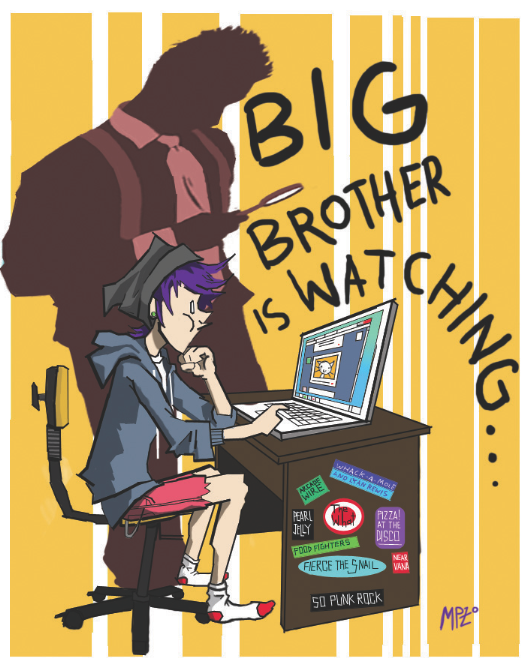
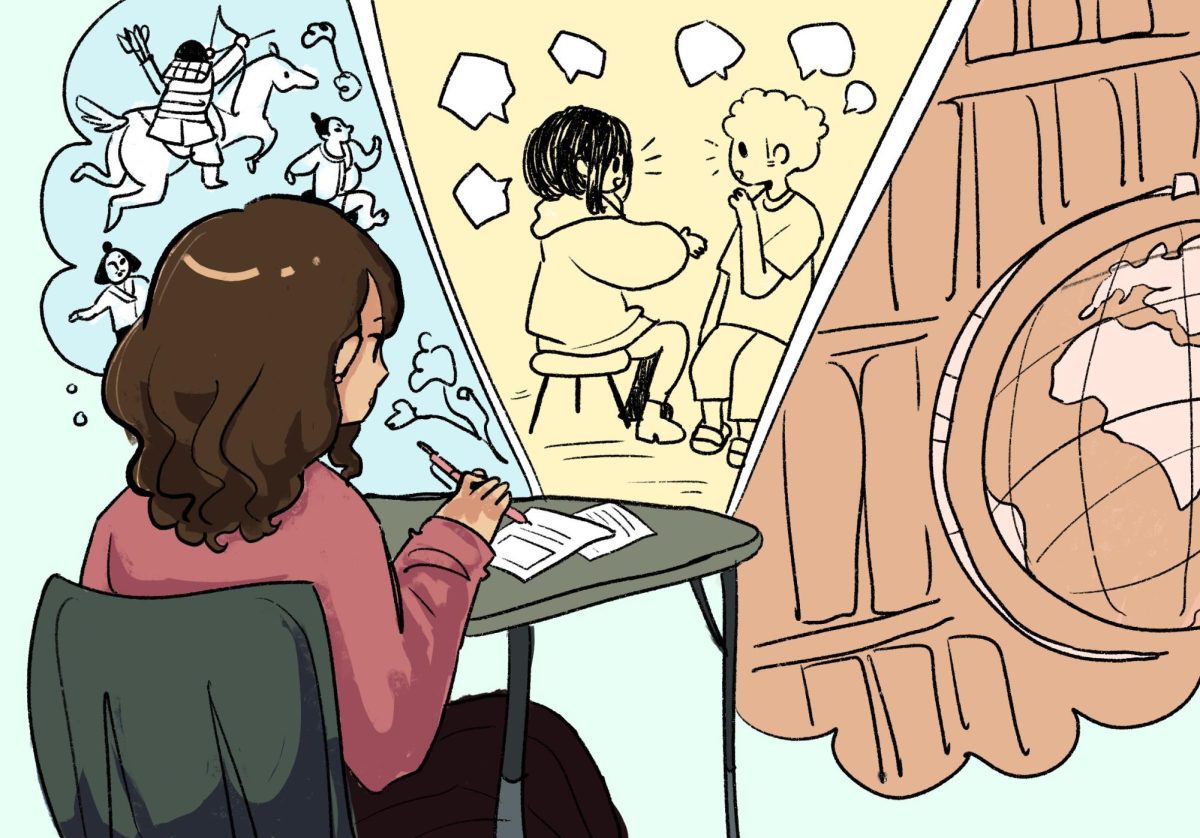
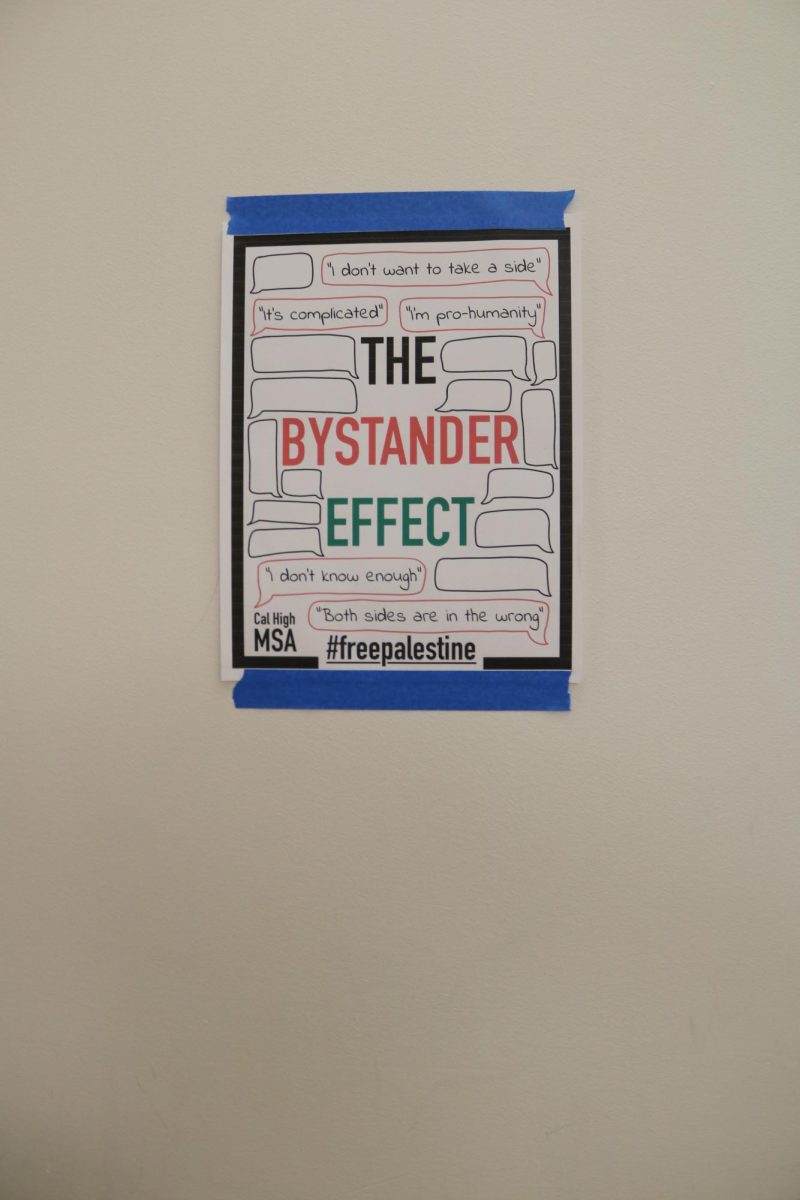
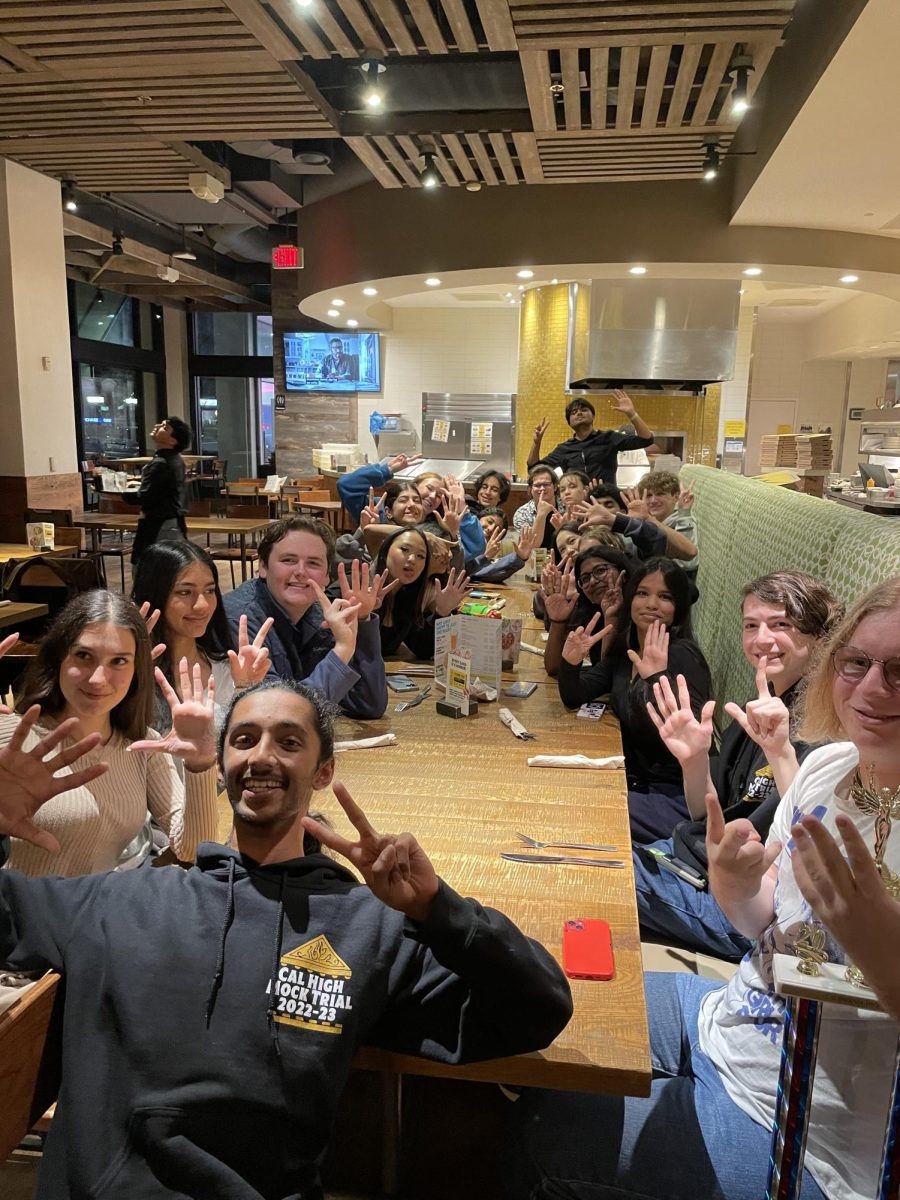
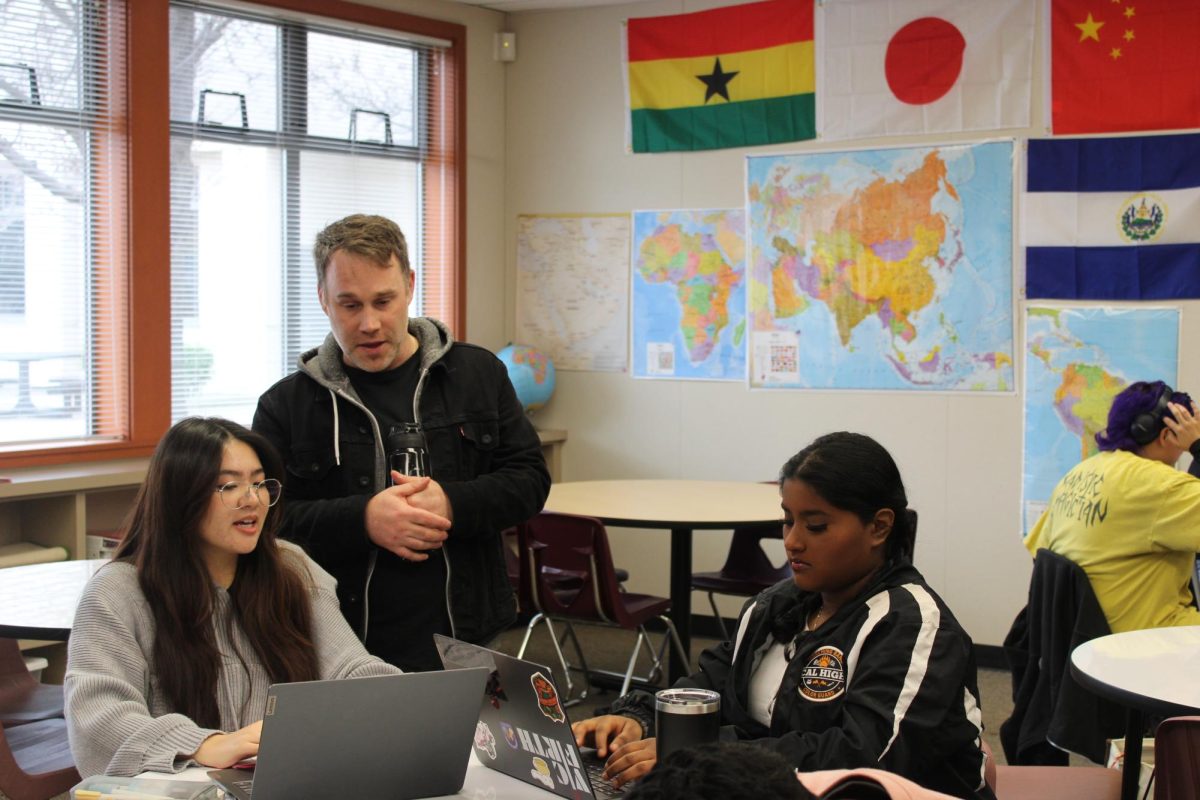
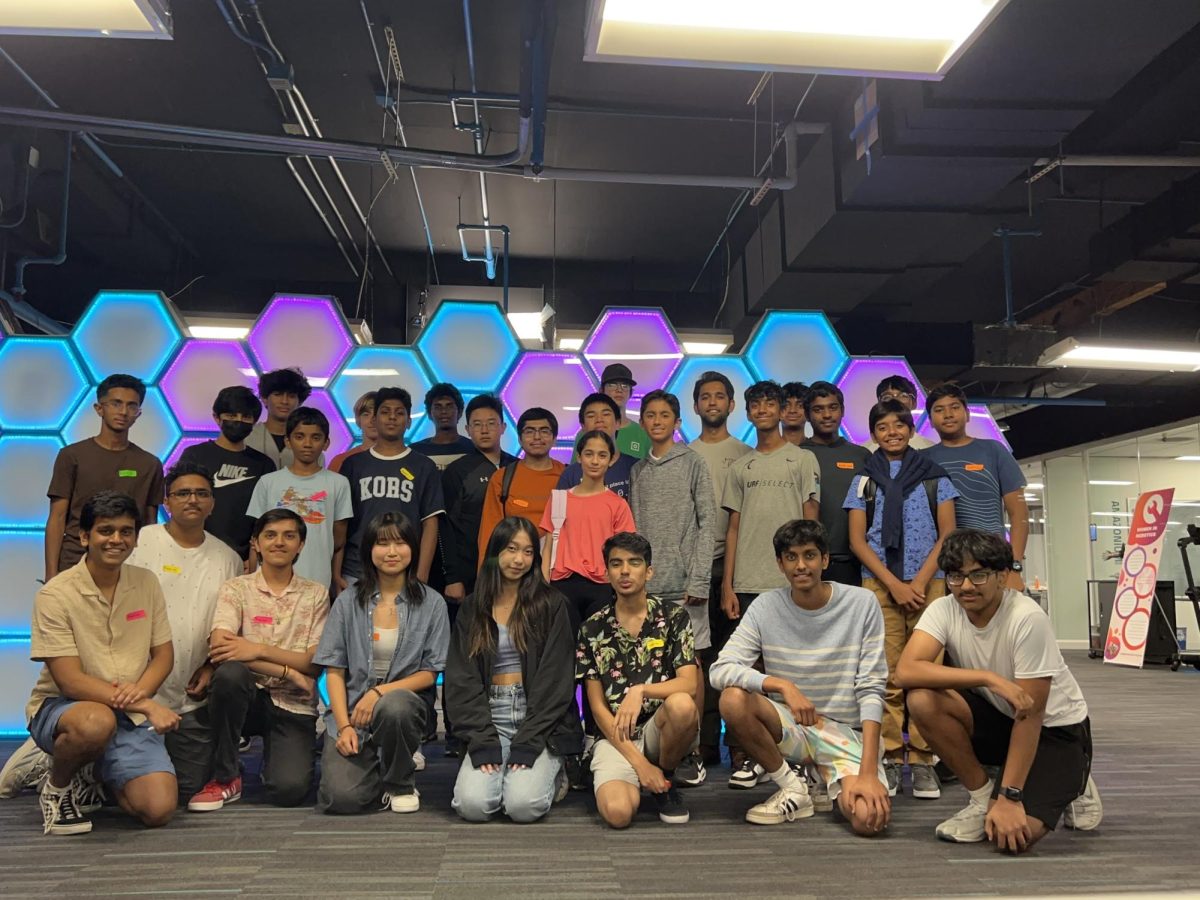
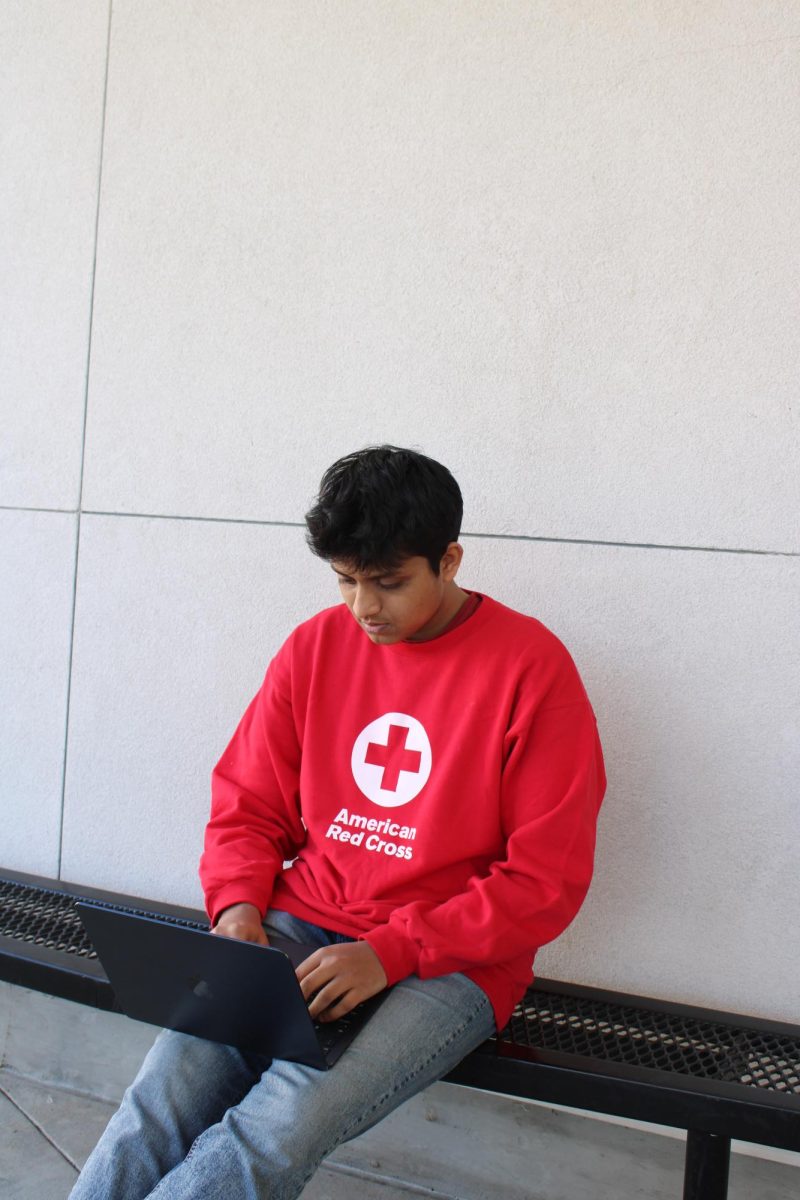

Nellie Chen • Nov 27, 2013 at 4:07 pm
I agree with Anna Hwang because though it may be legal to monitor students’ public posts, it is very unnecessary. I do believe that the monitoring may prevent cyber-bullying and suicides, but the chances of detecting a bully or a suicidal person are close to zero. Although companies that monitor students such as Geo Listening do track down students who drink or do drugs, it does not influence much change in the school campus as others who already drink or do drugs will continue to do so.
Also, the fact that almost $50,000 is spent on monitoring student’s social life rather than on the school’s academic needs, such as textbooks and equipment, is shocking. Many departments, such as the science and art departments, lack the funds to improve their classes, or even to keep doing the same lessons they have done in past years. Science teachers this year only get about $100 or less for their labs and experiments, but the cost of all the labs over the whole year is well over $1,000 for one class. The $50,000 spent monitoring students’ public profiles could be better spent on enriching academic courses.
I think that monitoring students’ social lives is useless and a waste of school money. It may be legal to search through students’ public profiles, but many are unnerved by it and it cannot bring much change to the school community.
Mary Mello • Nov 22, 2013 at 4:39 pm
I agree with Mr. Chilcott in that it is a very fine and a very blurry line that has to be taken into account. On one end it is great in that it can help prevent further issues and help put an end to cyber bulling. But on the other it is an invasion of privacy whether it is legal or not. People should be allowed to express themselves without the worry that they are being stalked by their own teachers and admin but also we have to keep in mind that what we put online is public and so therefor should be appropriate.
I think that in all things considered one way or another people will be upset so you just have to weigh what you think is greater, the possibility of stopping cyber bulling or the anger that will happen due to the invasion of privacy. I personally would be disturbed by the fact people are watching me, but if it is for the help of others I can live with the slight discomfort, so I am ok with it either way.